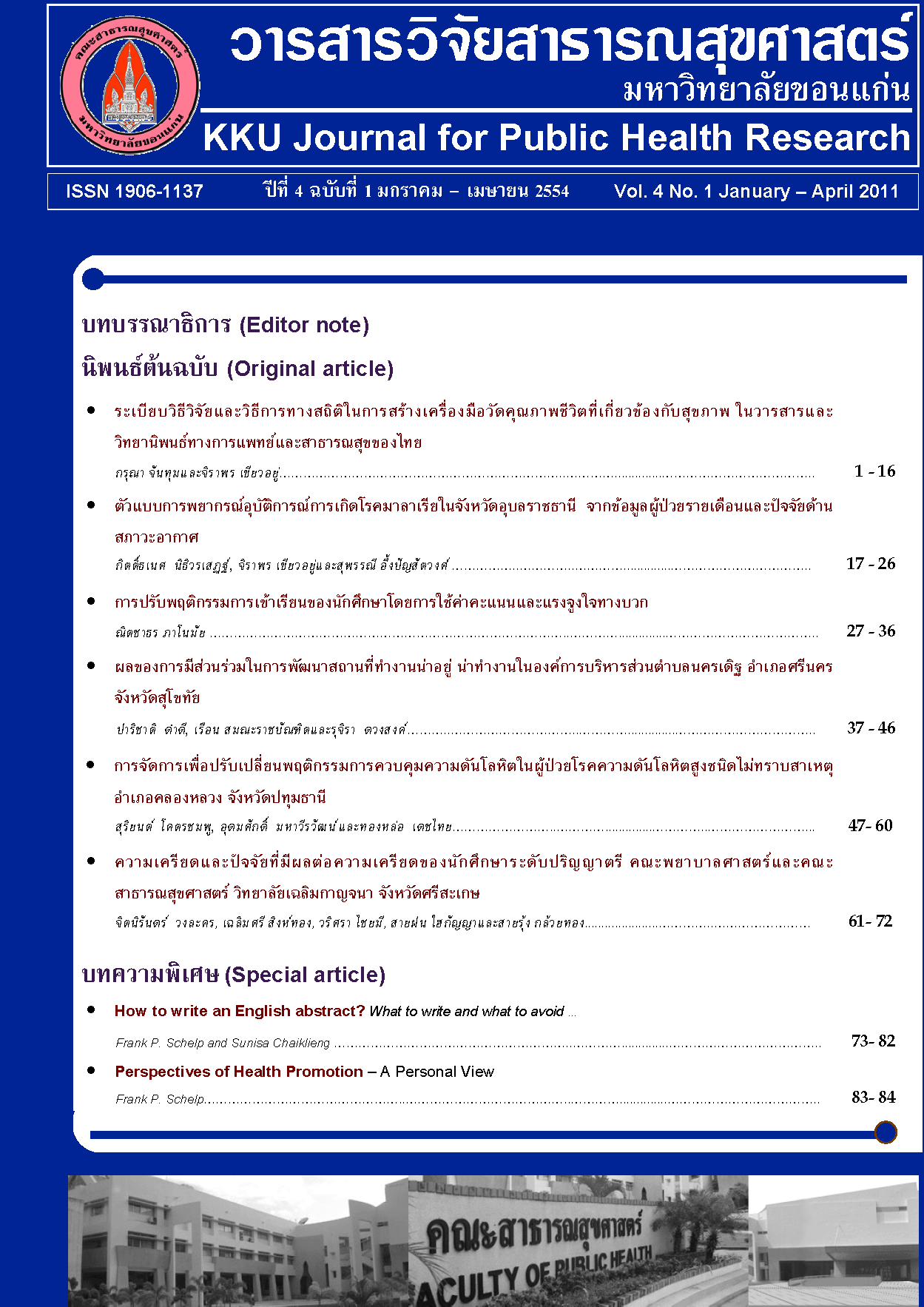Improving Blood Pressure Control Behavior among Essential Hypertension Patients at Amphoe Klong Luang, Changwat Pathum Thani
Keywords:
management, behavior modification, essential hypertensive patientsAbstract
Hypertension is a chronic disease. Uncontrolled, it might develop in a number of serious conditions like
stroke or kidney diseases as well as heart failure. Hypertension might contribute substantially to the indicator
‘years of healthy life lost to premature disability and death (DALY)’. Hypertension is a heavy burden for the
health delivery system. The patient is suffering physically and mentally. The economic aftereffects especially
for poor families are of great importance because of the cost for treatment, loss of working ability and time
spend for frequent visits to the hospital. This quasi-experimental research study aimed to examine and
compare knowledge, motivation, behavior, and blood pressure measurements among patients suffering from
essential hypertension residing in Amphoe Khlong Luang, Changwat Pathum Thani. Patients had been
selected by using a purposive sampling method. A group of 50 patients receiving medical service at Tambon
Khlong Nueang Health Center and was assigned as an experimental group while a group of 50 patients
receiving medical service at Tambon Khlong Song Health Center was serving as a control group. The
intervention was based on a theory for increasing motivation for disease prevention. Information was collected
by using a questionnaire. The statistics used for analyzing the data were percentage, mean, standard
deviation, and the Independent t-test and Paired t-test
Both of the groups had similar characteristics. Most of the participants were females, aged 61-70
years, were married and completed primary education. They were living with their children/grand-children, and
spouses, and had had hypertension for 1-5 years and 6-10 years respectively. After the experiment, the
experimental group increased their knowledge about hypertension, motivation to control the disease, and
blood pressure control behaviors, and could control the level of blood pressure better than before the
experiment. Differences between groups had been statistically significant.
In conclusion, the application of the theory of motivation for disease prevention could partly help to
improve the levels of knowledge, motivations, blood pressure control behaviors, and blood pressure of
essential hypertension patients with essential hypertension.



